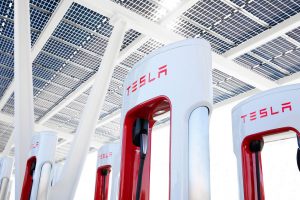- 🚗 Tesla Model Y became Australia’s best-selling electric vehicle in March 2024.
- 🔋 Total EV sales in Australia for March 2024 were 10,548 units, including 84 Polestar 2 vehicles.
- 📊 Model Y accounted for 4,379 of the total EV sales, surpassing other electric cars.
- 🚙 Model Y ranked among the top-selling vehicles in Australia, trailing only behind Ford Ranger and Toyota Rav4.
- 📈 Tesla’s Model 3, BYD Atto 3, and BYD Seal also secured notable sales figures.
- 🤔 Some EVs like GWM Ora and Toyota bZ4X had lower sales numbers despite affordability or brand recognition.
- 📉 Tesla is set to exit the FCAI membership due to disagreements over claims and behaviors, affecting future sales data reporting.
In March 2024, the Australian electric vehicle (EV) market witnessed a seismic shift as the Tesla Model Y surged ahead to claim the title of the country’s best-selling EV. Let’s delve into the data and explore what this means for the EV landscape down under.
Riding the Tesla Wave
The Tesla Model Y emerged as the undisputed champion, accounting for a staggering 4,379 sales out of a total of 10,548 EVs sold in Australia during March 2024. This dominance underscores Tesla’s stronghold in the EV market and signals a growing preference for its vehicles among Australian consumers.
Beyond Numbers: Implications for the EV Market
1. Market Validation for Tesla:
- The Model Y’s stellar performance reaffirms Tesla’s position as a frontrunner in the EV industry, bolstering investor confidence and solidifying its market presence.
2. Shift in Consumer Preferences:
- The Model Y’s popularity signifies a shift towards crossover SUVs, reflecting consumers’ evolving preferences for spacious, versatile, and eco-friendly vehicles.
3. Competition and Innovation:
- Tesla’s success spurs competition, incentivizing other automakers to ramp up their EV offerings and invest in innovation to capture a slice of the burgeoning market.
Understanding the Tesla Phenomenon
1. Brand Loyalty and Prestige:
- Tesla’s brand appeal and reputation for cutting-edge technology and sustainability contribute significantly to its allure, fostering brand loyalty and attracting discerning buyers.
2. Infrastructure Investment:
- Tesla’s robust Supercharger network and commitment to expanding charging infrastructure alleviate range anxiety and enhance the practicality of EV ownership, further incentivizing consumers to choose Tesla.
Challenges and Controversies
1. Exclusion of Polestar Data:
- The exclusion of Polestar’s sales data due to its departure from the FCAI highlights challenges in accurately assessing the EV market landscape and underscores the need for transparent and standardized reporting mechanisms.
2. Tesla’s FCAI Exit:
- Tesla’s decision to exit the FCAI over disagreements regarding data transparency and consumer representation underscores the complexities and tensions inherent in the automotive industry’s transition to electrification.
Looking Ahead: Opportunities and Trends
1. Policy Support and Incentives:
- Government incentives and regulatory measures aimed at promoting EV adoption are likely to further accelerate market growth and encourage investment in EV technology and infrastructure.
2. Diversification of EV Offerings:
- The success of the Model Y underscores the demand for diverse EV options, prompting automakers to diversify their portfolios and cater to varying consumer needs and preferences.
Conclusion
The Tesla Model Y’s meteoric rise to prominence in Australia’s EV market heralds a new era of electrification, characterized by innovation, competition, and evolving consumer preferences. As the automotive industry undergoes a transformative shift towards sustainability, Tesla’s dominance serves as a compelling case study of the potential and promise of electric mobility.





